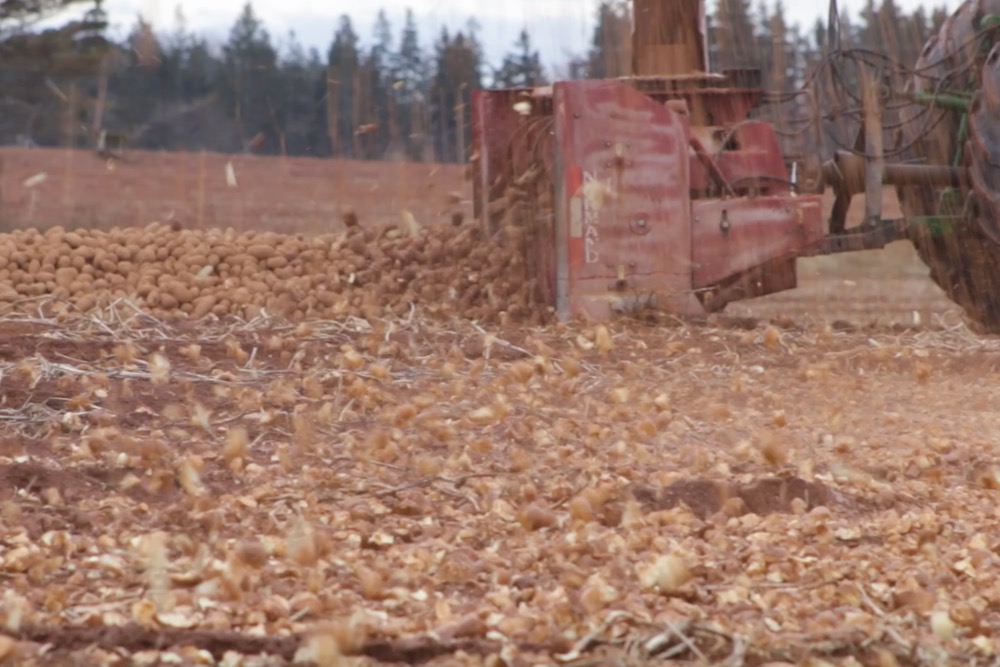Quebec’s farming sector can expect a noticeable cut in program spending and a handful of tax credits and tax relief coming out of Thursday’s provincial budget.
Finance Minister Carlos Leitao on Thursday announced a cut of about 15 per cent in program spending for the agriculture, food and fisheries ministry through the province’s general fund, from $1.037 billion in 2014-15 to $881.7 million in 2015-16.
Small- and medium-sized businesses (SMBs) in the “primary” sectors, including farming, fishing and forestry, will see a reduction in their tax rate from eight per cent to four per cent effective Jan. 1, 2017, Leitao said. The cut, when effective, will reduce the total tax bill by just over $28 million for about 6,500 businesses.
Read Also

U.S. not ready to lift Mexican cattle ban over screwworm, Agriculture Secretary Rollins says
The U.S. is not yet ready to reopen its border to Mexican cattle amid an outbreak of the flesh-eating New World screwworm parasite, Agriculture Secretary Brooke Rollins said, but she is pleased with Mexico’s efforts to contain the pest.
The tax relief measures for SMBs will be financed in part by an adjustment to the small business deduction (SBD), he said. Also starting Jan. 1, 2017, the SBD will only be granted to SMBs that “meet the objectives” of the deduction in terms of “investment and job creation.”
SMBs, the province said, will also see their Health Services Fund contributions through employee payrolls reduced from 2.7 per cent to 1.6 per cent starting in 2017.
Come 2017, the province said, “the difference in the tax burden between an agricultural SMB in Quebec and in Ontario will have been reduced (from pre-2015 levels) by more than 90 per cent” for comparable businesses with taxable income of $500,000 and a $1 million payroll.
Succession
The province will also change its tax rules on business ownership transfers, to allow tax relief for family businesses in both the “primary” and manufacturing sectors in the manner now allowed for other types of business transfers.
The change, Leitao said, is meant to “foster the transfer of family businesses in the primary and manufacturing sectors” and will apply to all small family businesses in those sectors, including farming businesses, and will also take effect Jan. 1, 2017, at a cost of about $15 million per year.
To that end, he said, the province will “continue to work in the coming year to identify eligibility criteria that will make it possible to restrict the relief solely to legitimate business transfers” and expects those criteria to be clarified by the time the 2016-17 budget is released.
Tax code today includes an “integrity rule” that blocks an individual from claiming a capital gains exemption on the sale of qualified shares to a corporation with which he or she is not dealing at arm’s length.
The gain on the sale of shares to non-arm’s-length buyers is generally treated as deemed dividends, not capital gains — making it more advantageous to sell a business outside the family. Leitao said the integrity rule will be amended to narrow its scope.
On the same topic, he said, the province will budget $2 million a year over the next three years for funding to support business succession planning and mentoring.
Food donations
The budget also calls for an increase of 50 per cent in the tax credit available for farmers’ donations of farm products to any of the 18 regional food banks (Moissons) in the provincial network.
The tax credit is to take the form of a non-refundable tax credit (for individuals) or a deduction (for companies). The increase is expected to cost the government about $2 million a year.
Farmers are already major suppliers to the regional food banks with donations fruit, vegetables, meat, dairy products and grains, the province said.
Generally, however, farmers have also had to cover additional storage and delivery costs incurred to supply those items, the province said.
“Moreover, given the current challenges they face, farmers must exert tighter control over their expenditures and increase productivity in order to maintain their position on the local market and expand onto external markets.” — AGCanada.com Network












